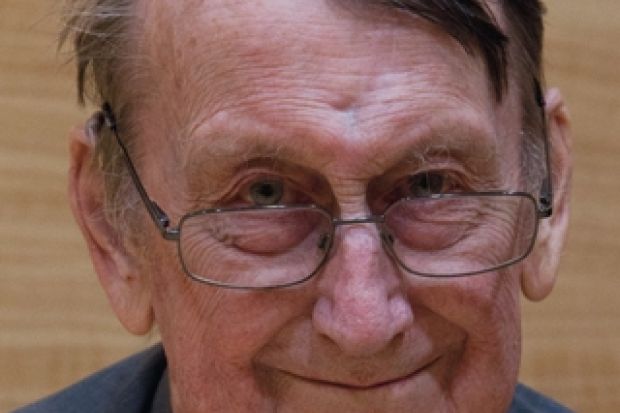David Barron was one of the "founding fathers" of computer science and was known as a bon viveur by his friends and colleagues.
Professor Barron was born on 9 January 1935 and studied mathematics at Downing College, Cambridge. He stayed at the university for his doctorate and during his research at the Cavendish Laboratory utilised the original Electronic Delay Storage Automatic Calculator (EDSAC), an early computer.
After his doctorate he joined the Cambridge Mathematical Laboratory where he helped to develop Combined Programming Language, which allowed low-level programming and high-level abstract work to be carried out with the same language.
In 1967, he joined the University of Southampton's mathematics department as its first professor of computation, a post he combined for many years with the directorship of its computing services department. He spent four decades at Southampton, during which time he played a key role in shaping the emerging academic discipline of computer science.
In 1986, Professor Barron became Southampton's first professor of computer science and from 1989 to 1994 was head of its department of electronics and computer science. He continued to teach and carry out research at the university until 2000.
Professor Barron was a prolific writer, penning influential works on topics such as recursive programming, programming languages and scripting languages. His 1968 text Recursive Techniques in Programming proved so popular that he was still receiving royalty cheques from it more than 40 years later. Alongside his other roles, he was a founding editor of Software - Practice and Experience, a journal that he edited for more than 30 years from 1971.
He was also an accomplished physicist and conducted research with Henry Rishbeth that showed how radio waves are reflected at the ionospheric boundary.
Judith Bishop, director of computer science at Microsoft Research and a former PhD student of Professor Barron, recalled his sense of humour, his colourful ties and socks, and the fact that he "was never scared of taking a new road". She described one occasion when they had decided to investigate whether drinking Cinzano would make his pink socks appear pinker: "By the time we had enough data we could not take the definitive decision, but we went home happier."
Dr Bishop said she admired him "for his vision, his clear thinking, his humanity and his prodigious output of books".
Professor Barron died last month aged 76 after several years of poor health. He is survived by his wife Valerie and two children.
Register to continue
Why register?
- Registration is free and only takes a moment
- Once registered, you can read 3 articles a month
- Sign up for our newsletter
Subscribe
Or subscribe for unlimited access to:
- Unlimited access to news, views, insights & reviews
- Digital editions
- Digital access to THE’s university and college rankings analysis
Already registered or a current subscriber? Login
